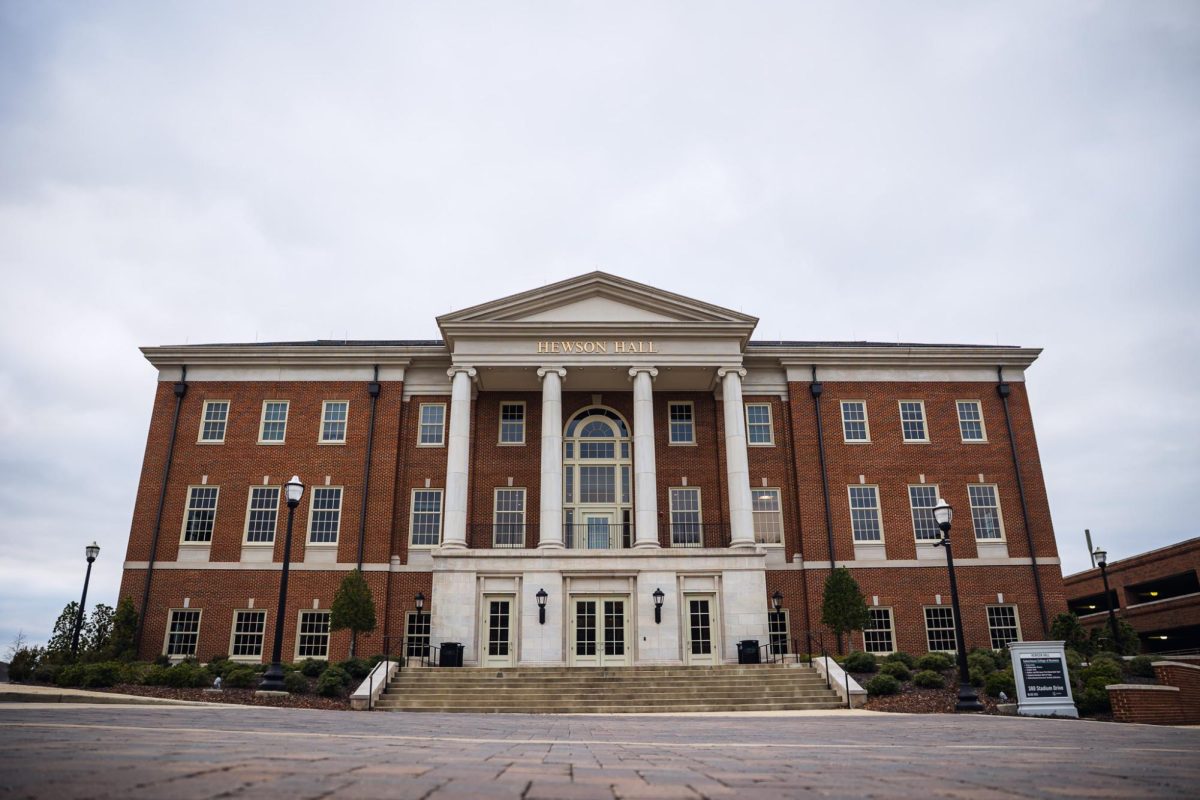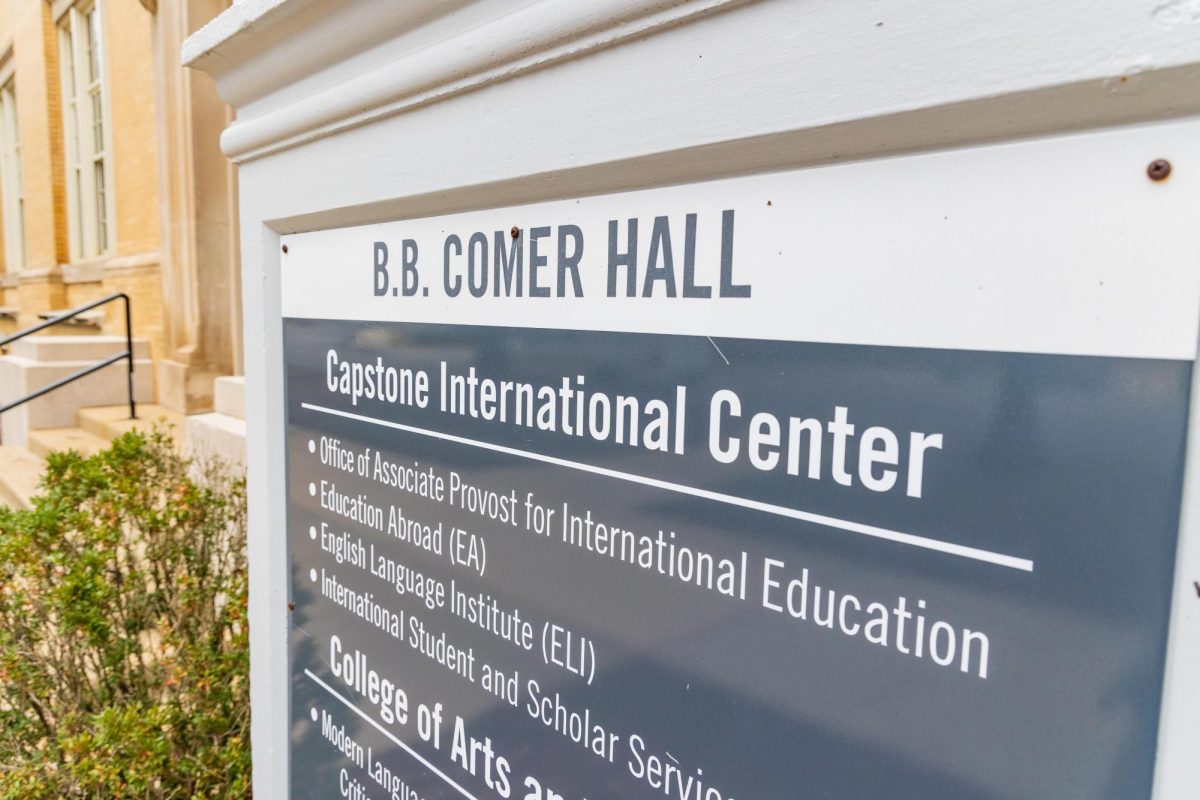Nobel Prize-winning experimental economist Vernon Smith was invited to campus Feb. 7 by the Department of Economics, Finance and Legal Studies to give a lecture on his life experience and answer student’s questions. To a packed audience in Hewson Hall, Smith discussed the foundation of his body of work and later hosted an informal Q&A session during a lunch with undergraduate students.
Smith is considered by many to be the father of experimental economics. His “Double-Auction” market experiments were used to validate the concept of economic equilibrium — that markets balance themselves at a price where supplier costs and consumer values intersect.
During his lecture, Smith discussed the foundation of his body of work, including his unconventional arrival to the field of economics as a graduate with a bachelor’s in chemical engineering. He also focused on the timeless applications of Adam Smith’s economic theories from the 1700s on the economic world of today.
He was awarded the Nobel Prize in 2002 for his contributions to the fields of experimental and behavioral economics, “setting standards for what constitutes a reliable laboratory experiment in economics.”
Smith’s experimental approach to economic research influenced many, and his impact can be felt at the University today. Cary Deck, an economics professor and head of the University’s experimental economic research program TIDE Lab, was once advised by Smith at the University of Arizona. Today, Smith is the namesake of several economics departments and author or co-author of over 350 books on the subject.
Smith first became a professor in the 1950s and continues to work both as an instructor of economics and law and as a researcher at George Mason University. He is also still active in lecture series around the country, including his visit to the University last week.
The only economist to rival Adam Smith in sheer scale of influence is probably Vernon Smith, Deck said during the lecture.
Adam Smith is widely regarded as the father of economics and capitalism, and his works like “The Wealth of Nations” and “The Theory of Moral Sentiments” laid the groundwork for the modern economy.
Vernon Smith’s upcoming book, “Adam Smith’s Theory of Society: Social Rules for Order in Society and Economy,” covers a lot of these topics in detail, and much of Smith’s work for the past decade has centered on Adam Smith’s approach to classical liberalism
At the end of his lecture, Vernon Smith implored students to be open-minded and adventurous in their academic pursuits, as he was when he first became an economist in graduate school.
Later, Smith met with students from the economics department for an informal lunch, discussing topics from across the spectrum of economic thought. Students were particularly interested in recent changes to American economics, and what Smith saw in the economic climate of today.
“People revolted in the last election against a system that basically takes money from A and gives it to B without asking either of them how they feel about it,” Smith said. “I think that Trump was an accidental beneficiary of that. He was kind of there at the right time and had the right message, but he clearly doesn’t understand the economics of tariffs.”
Students also asked about the implications of President Trump’s tariffs on foreign goods and steel, the impact of pandemic-era inflation on the economy and the role of the Federal Reserve, to which Smith was opposed.
“Well, we don’t need them for check clearing or any other function,” Smith said. “I would say just abolish them. They just cause trouble by contributing to inflation. Who needs them?”
On tariffs, Smith said that politicians were too focused on workers to think about the impact that high tariffs would have on consumption, which would consequently affect the need for workers.
“It’s the consumer that you should have in mind when you’re thinking about economic policy, and not any of the other more specialized interest groups that may conflict with improving consumer welfare,” Smith said.









